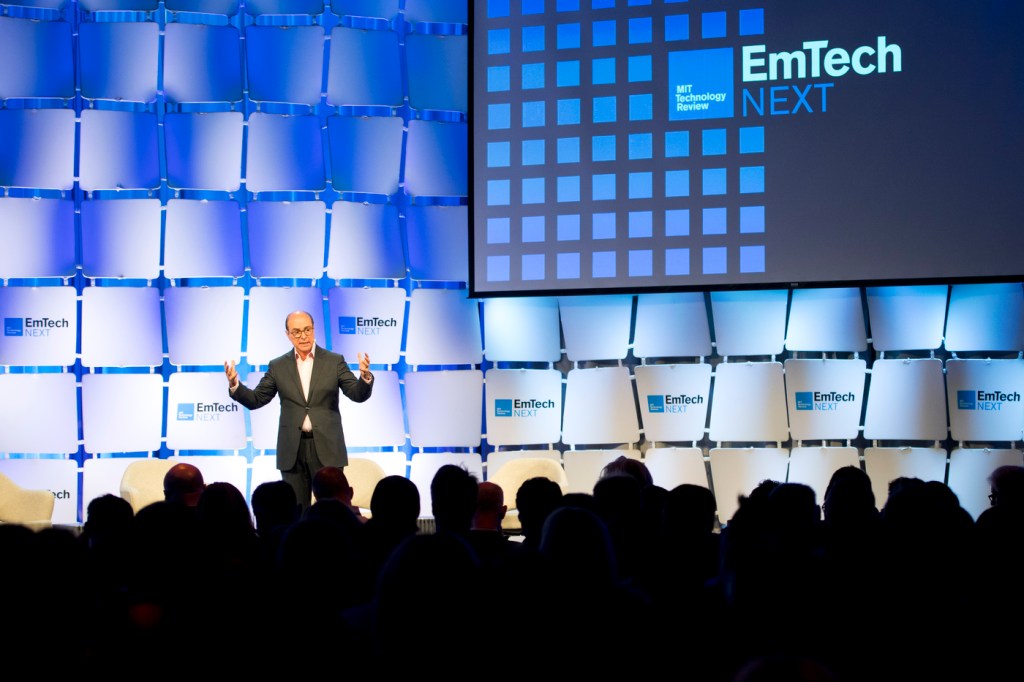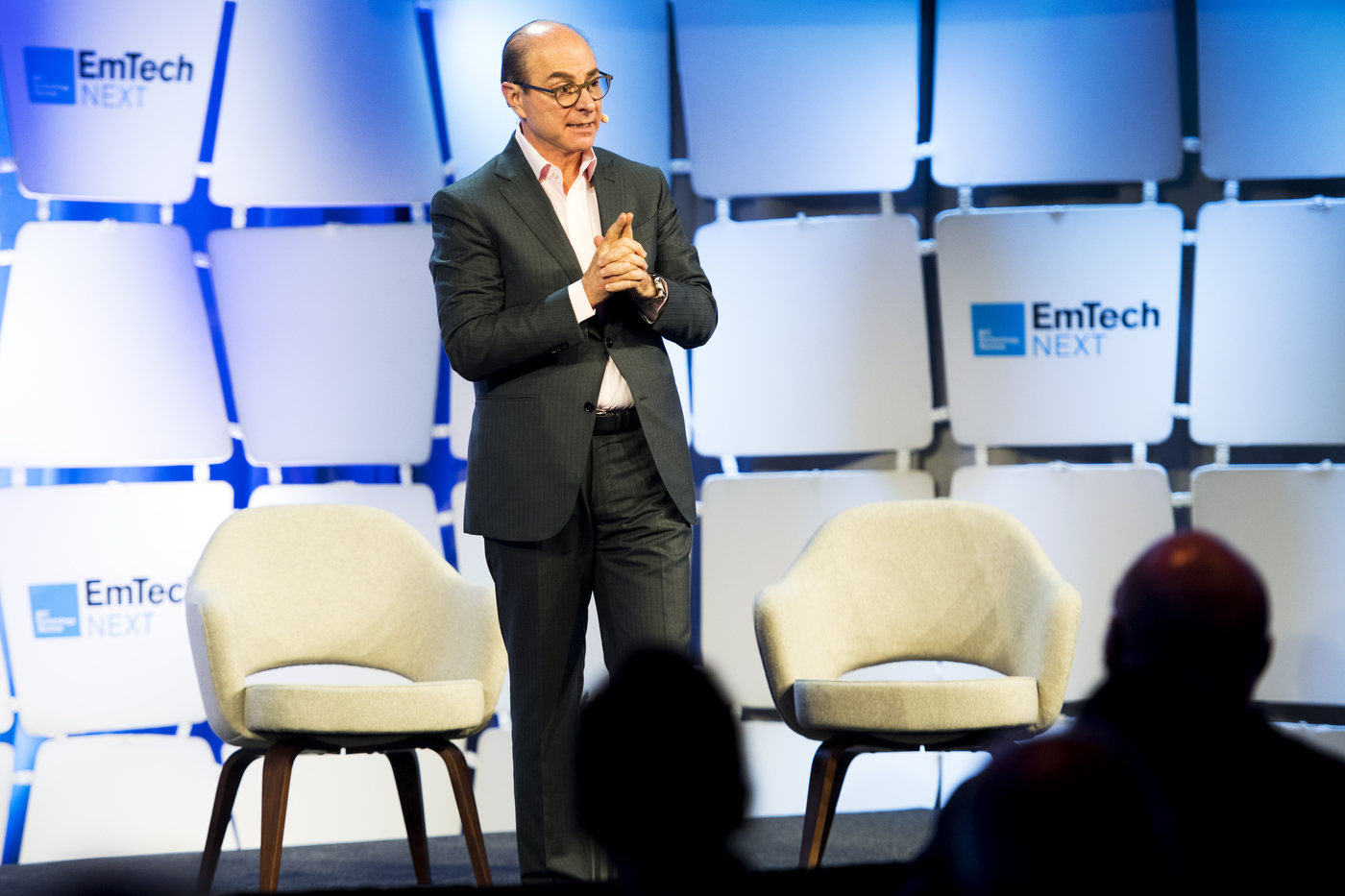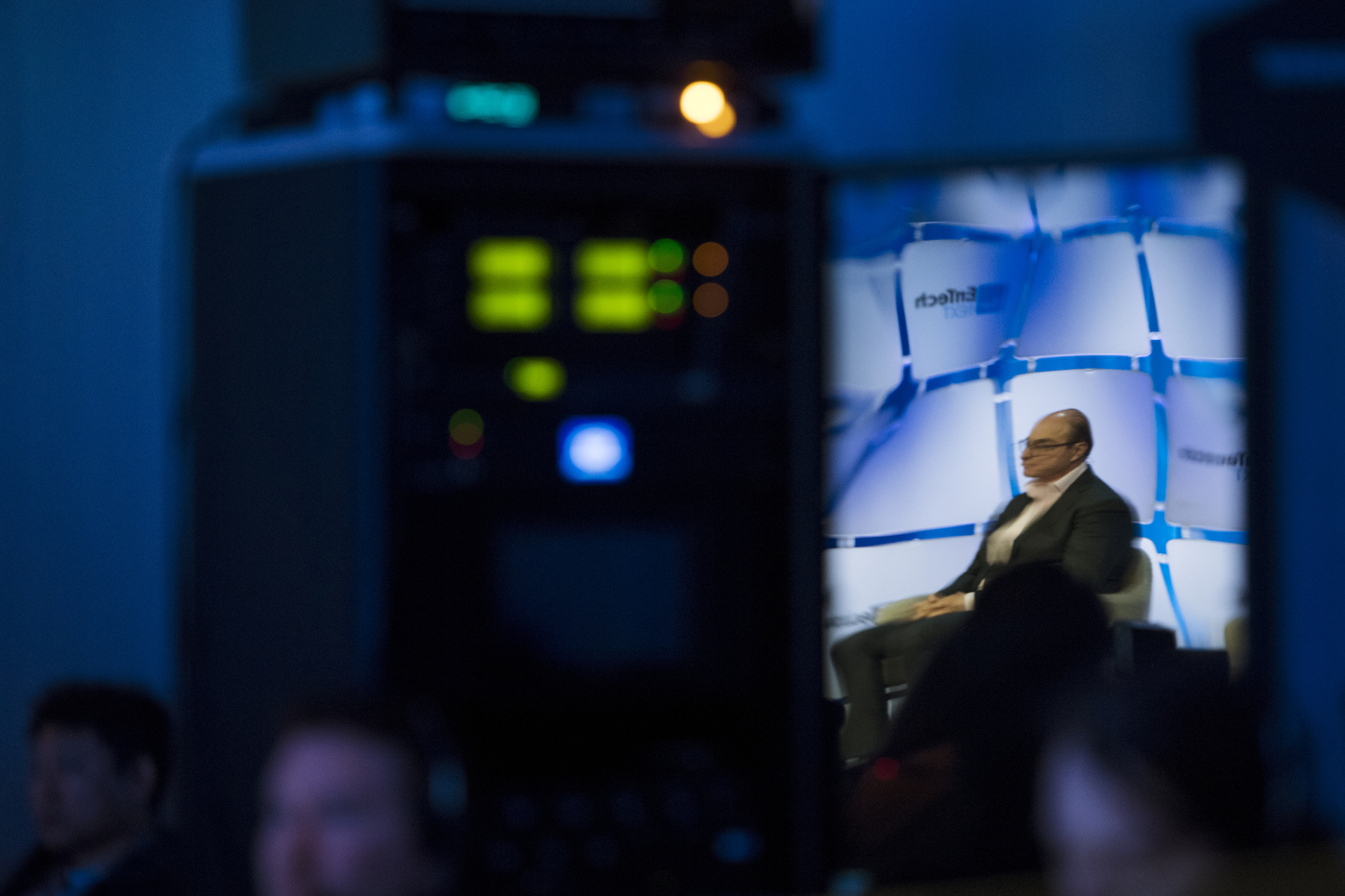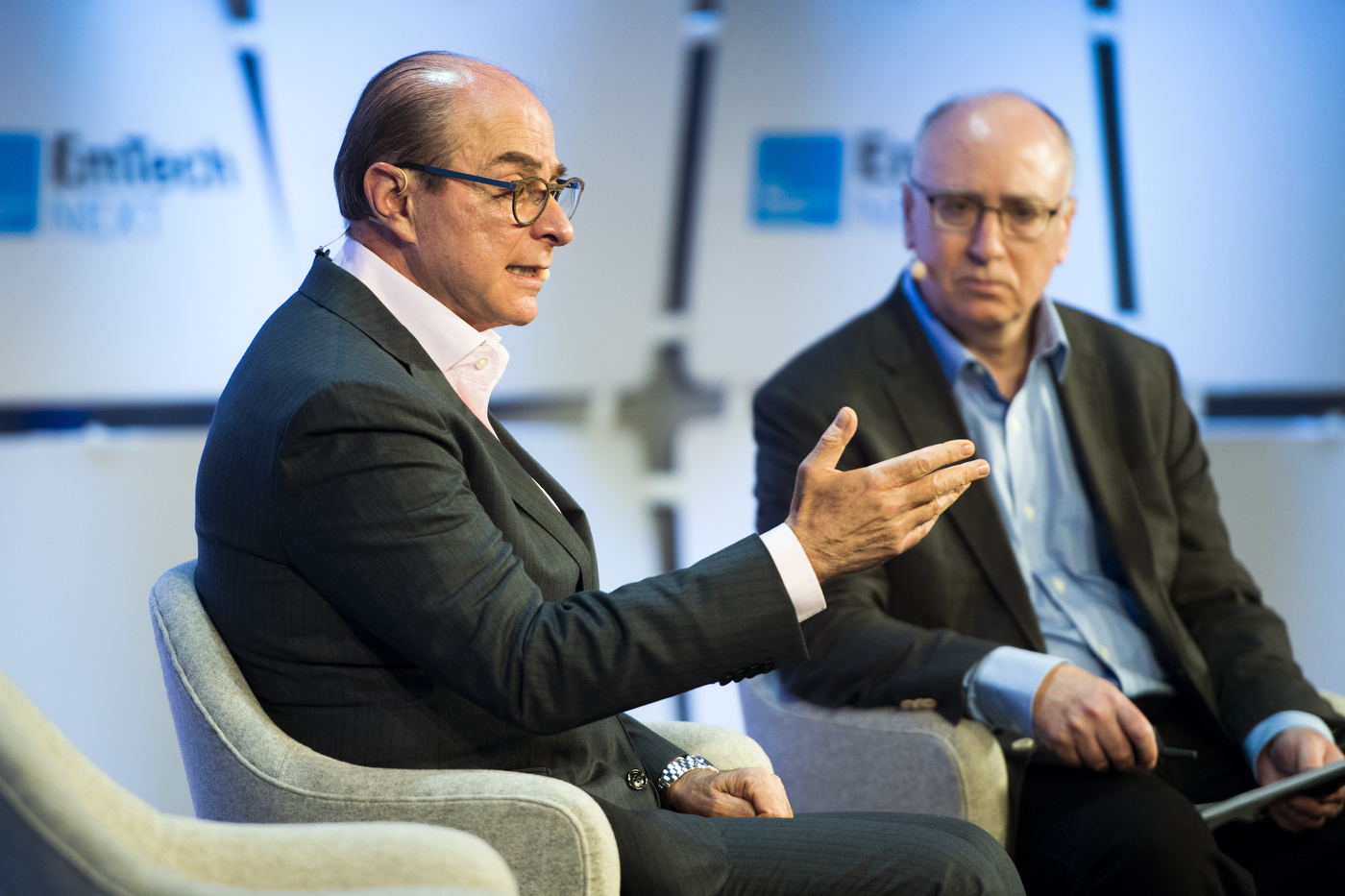President Aoun: Becoming ‘robot-proof’ is a lifelong journey

Robotics and artificial intelligence are primed to disrupt the future of work, and becoming “robot-proof” amid this revolution is a lifelong journey, Northeastern University President Joseph E. Aoun said Monday at a conference at the Massachusetts Institute of Technology.
Some jobs will disappear due to the rise of AI, while others will be transformed or created, he said. Technology will impact both white- and blue-collar jobs, he added, noting that AI and robotics are “collar-blind.”
“The implications are profound,” Aoun told the global audience at the inaugural EmTech Next conference, hosted by the MIT Technology Review at the MIT Media Lab. “The question becomes what is it that we can do as a society in order to allow people to remain relevant and to be robot-proof.”
This, he said, is the mission of higher education.


Aoun spoke at a session titled “In Machines We Trust,” which focused on how humans can learn to collaborate better with intelligent systems. He underscored the role of higher education in preparing students to compete in a world in which smart machines work alongside human professionals.
The topic is the crux of his new book, Robot-Proof, in which he lays out the framework for a new curriculum—humanics—that builds on humans’ innate strengths.
The question becomes what is it that we can do as a society in order to allow people to remain relevant and to be robot-proof.
Joseph E. Aoun, President of Northeastern
Aoun argued that students must master three new literacies—technological literacy, data literacy, and human literacy—in order to fill societal needs that even the most sophisticated robots cannot. The key to becoming robot-proof, he said, is to focus on human characteristics that machines cannot duplicate, such as being innovative, entrepreneurial, culturally agile, and global.
Experiential education is critical to becoming robot-proof, Aoun said. Experiential learning opportunities enable students to work in teams, get hands-on training, and develop a strong understanding of the inner-workings of a business or industry, he said.
To help people become robot-proof, Aoun said, higher education institutions must embrace the notion of lifelong learning and provide programs that are personalized and customizable and meet learners’ needs wherever they are. “If the world is changing and there are new fields being created constantly, we are going to become obsolete,” he said. “Therefore we need to reeducate ourselves, reskill ourselves, and upskill ourselves. This is going to be essential.”


During a Q&A with MIT Technology Review editor David Rotman following his talk, one audience member asked Aoun how higher education can teach a human trait such as empathy, which is often believed to develop during childhood. Aoun said that becoming “robot-proof” is a lifelong journey and that people must learn how to manifest these traits. That, he said, is where experiential education comes in, because it allows students to hone their human skills in professional settings.
“Empathy is not something that is set once for life,” he said. “I personally discover it and rediscover it constantly. That’s the beauty of it.”





